Pesticide-free grown pecans
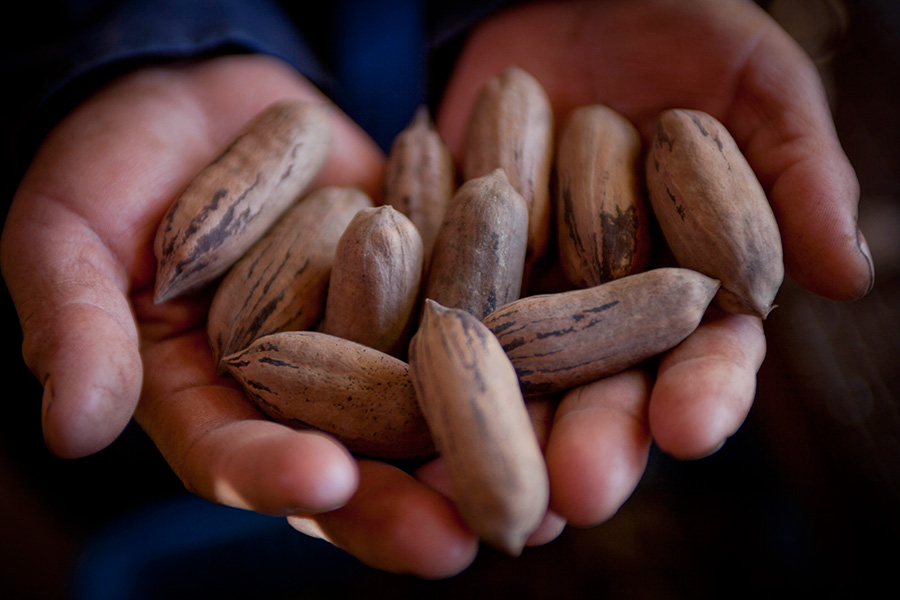
“Mahan” pecans are a variety of large, elongated nuts with a delicious taste. The shell of the Mahan nut is very thin, making it one of the easiest to peel.
Pecans of the Mahan variety are genuine nutritional treasures. Their content of monounsaturated fatty acids not only contributes to reducing cholesterol and preventing coronary diseases but also provides a series of additional benefits for your well-being:
Prevents heart attacks: Thanks to their cardiovascular properties, pecans are allies in protecting against heart attacks.
Reduces bad cholesterol: Combating harmful cholesterol is one of pecans’ specialties, ensuring a healthier heart.
Prevents premature aging: Antioxidants present in pecans act as a natural shield against premature cell aging.
Reduces the risk of arteriosclerosis: Their positive impact on the circulatory system helps keep arteries free from harmful deposits.
Prevents muscle cramps: The nutrient richness of pecans contributes to preventing annoying muscle cramps.
Perfect for diabetic diets: With their sodium-free and satiating capacity, pecans are ideal for integrating into diets designed for diabetes control.
Recommended for skin conditions: The nutritional benefits of pecans can also positively contribute to skin health.
This variety is highly preferred in the Asian market, as its characteristic double tip is considered a symbol of good luck.
To preserve all their benefits and nutrients, at Hacienda San Juan de Bellavista, we cultivate pecans without the use of pesticides, employing natural techniques to combat pests and nourish our pecan trees.How do we cultivate our pecans?
Pruning is carried out to eliminate poorly formed and/or broken branches to provide more light to the plants, thus achieving better photosynthesis and aeration. These conditions will result in obtaining fruits of better quality. Adequate nutrition is essential. At Hacienda SJB, fertilizers and nutrients are carefully applied to ensure that the trees receive the necessary nutrients for robust and healthy development. We use a combination of fertilizers that we produce, such as worm humus based on our pruning waste and fertilizers. After fertilization and the first irrigations, pecan trees experience sprouting, coinciding with spring. New shoots of male and female flowers as well as leaves emerge, marking the beginning of a new cycle. Pollination is a crucial step for fruit formation. At this stage, pollen is transferred from male to female flowers, initiating the development of nuts. After pollination, the small, already set nuts begin to grow. During this phase, it is essential to maintain proper care for healthy development. With sustained irrigation and proper sanitary practices, the nuts continue to grow and subsequently fill. This period is critical to ensuring uniform size and quality of the fruits. As the nuts reach maturity, the green capsule that surrounds the pecans (husk) cracks and then opens. It is then that we can see the characteristic brown shell, and the content (the peeled pecan) should have transitioned from liquid to solid, occupying the entire interior of the shell. The harvest marks the culmination of the first process. Once we have a good percentage of ripened nuts on the plant, they are harvested using harvesting machinery with care to preserve their integrity and quality. This step requires precision and attention to ensure a successful harvest.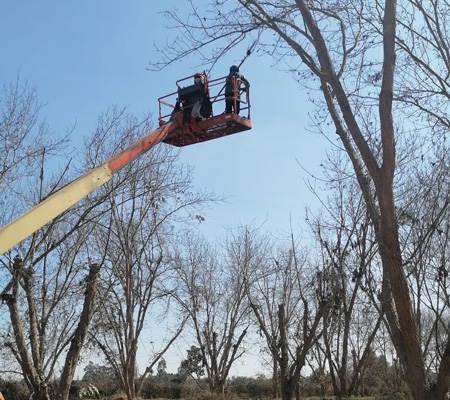
Pruning
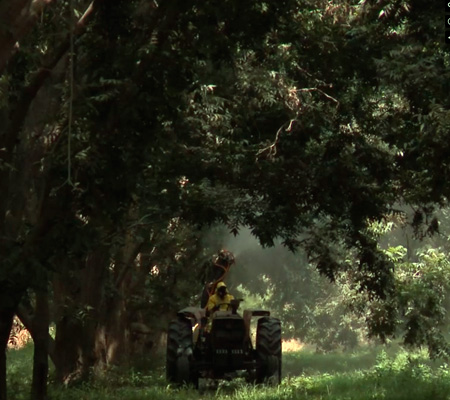
Fertilization and Nutrition
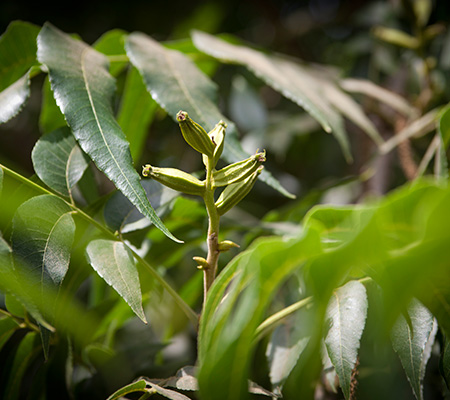
Sprouting
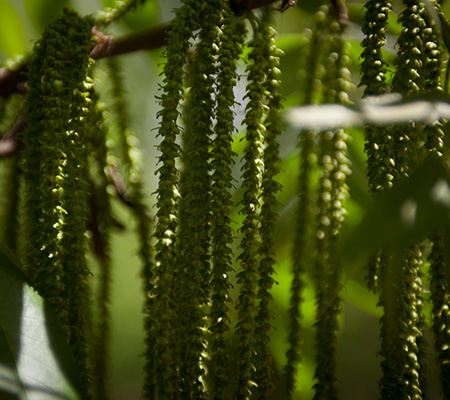
Pollination
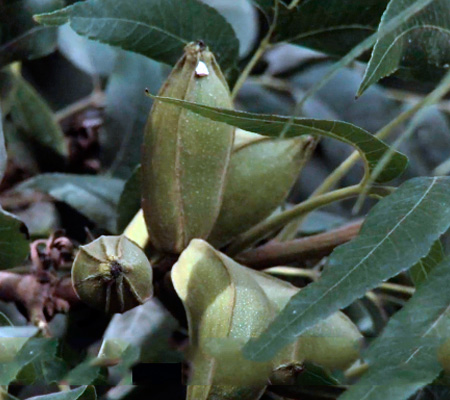
Fruit Growth
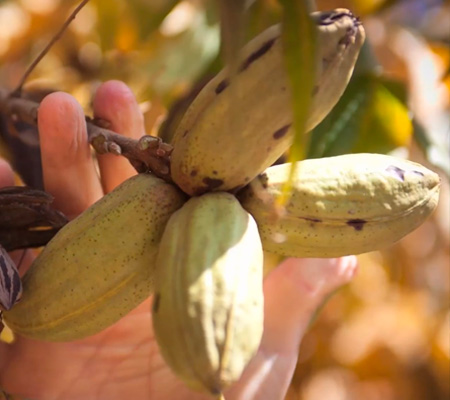
Filling of the Nuts
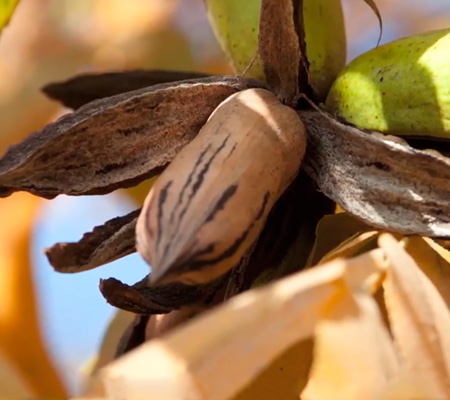
Maturation
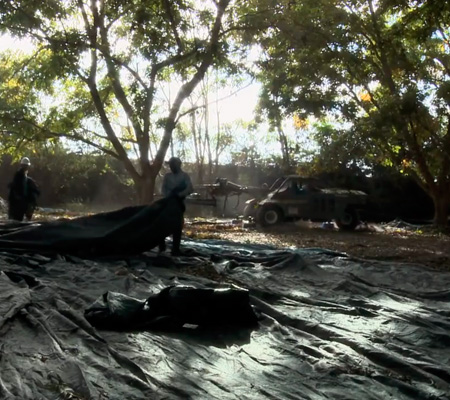
Harvest
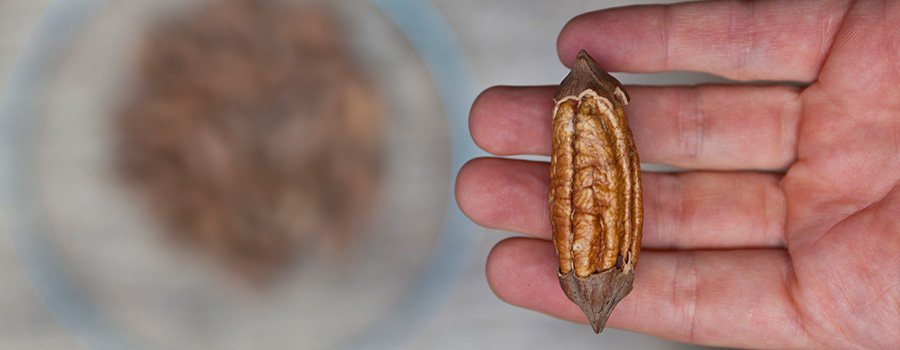
Post-Harvest
Post-harvest is vital to achieving the ideal flavor of pecans and making them less perishable.
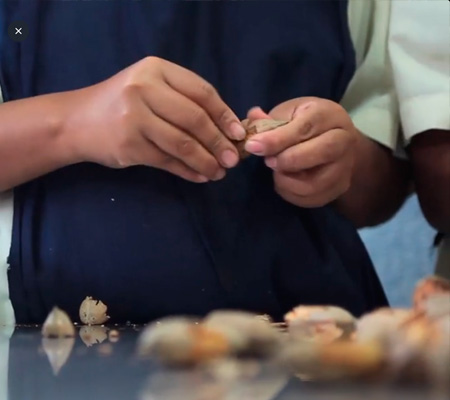
Selection of Damaged Fruits
After the harvest, a meticulous selection of the fruits is carried out. Pecans harvested from the trees come from the field with leaves and branches and are transported to the cleaning plant where they are first passed through a sieve and then through selection tables where all field debris, as well as any damaged or defective nuts, are removed.
All field waste, as well as defective nuts, will be used to produce our organic matter.
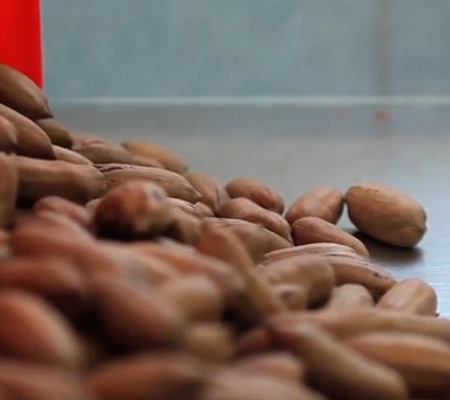
Fresh Air Drying
The selected pecans, when harvested, come with very high humidity. That’s why they have to go through a process of drying with fresh air. This step is essential not only to reduce moisture but also to preserve freshness and prevent premature rancidity of the nuts.
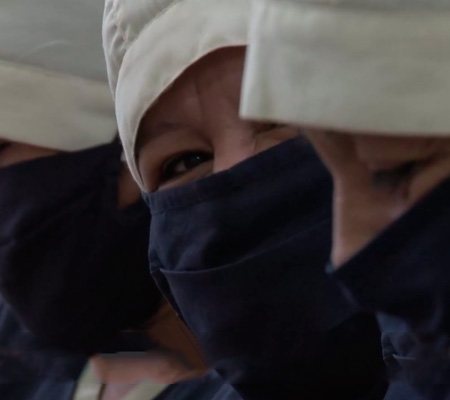
Size Classification
Pecans are meticulously classified according to their size. This process allows offering uniform products, meeting quality standards to satisfy consumer preferences.
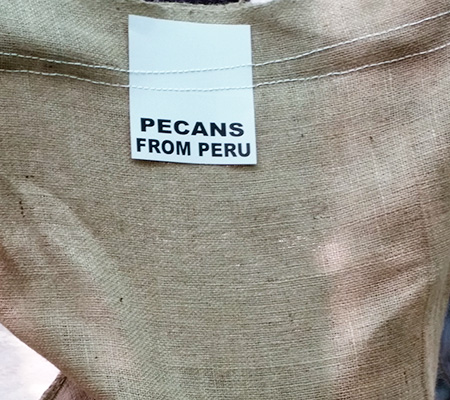
Export of Pecans in Shell
Once classified according to the required standards, pecans in shell are ready for export. This step marks the beginning of their journey to various destinations, carrying with them the authentic size and flavor of pecans.
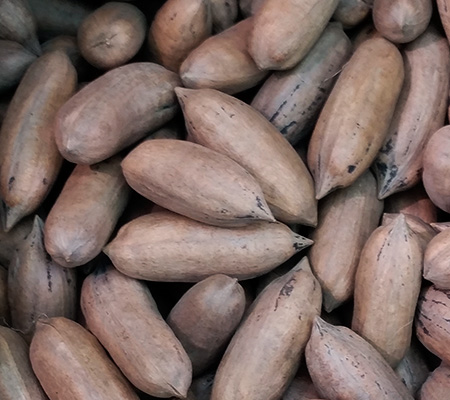
Refrigerated Storage for Shelling
Pecans that have not been exported in shell are stored in refrigeration. The controlled environment ensures the preservation of their quality and freshness to be consumed in shell or shelled.
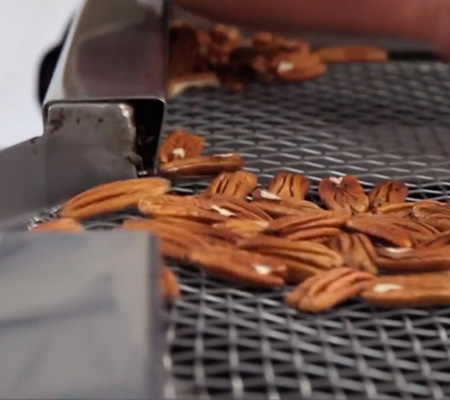
Shelling Process
Finally, for both the local market and export, pecans can be shelled. This shelling is done in specially designed environments to meet all sanitary standards and thus offer a healthy and delicious product in various presentations ready to be enjoyed.
The entire process, from pruning to shelling, represents the commitment to quality that distinguishes pecans. Each step is crucial to offer an exceptional final product that will delight your palate.